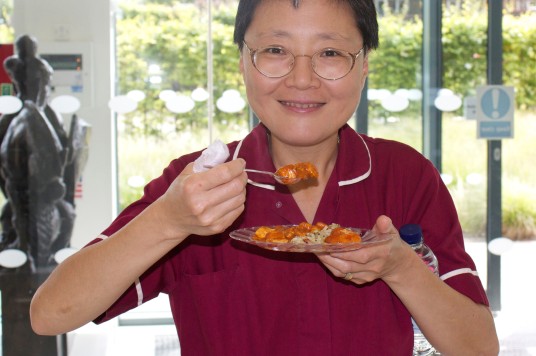Come Dine With Us at St George’s
Last week the Department of Health announced new legally-binding hospital food standards. This was done to ensure that all hospitals pay great attention to the nutritional value and quality of the food they’re offering to their patients. There will also be the option for patients to rate the food they’re given with the feedback being used to generate an overall rating for NHS trusts.
We all understand that with a limited budget of less than £10 per patient to cover the cost of all daily food and drinks, our hospital cuisine can’t compete with the likes of Marco Pierre White or Raymond Blanc. However, food and nutrition are a vital part of good inpatient care and we want to provide tasty, enjoyable meals for our patients.
So what is the food like here at St George’s? To find out we invited our twitter followers and members of the public visiting St George’s Hospital to a free tasting session on Friday 29 August.
The results were very good with comments like “all the food was great”, “lovely jubbly”, “it’s a good idea to have a tasting session”, “if this is hospital food, then I want to be a patient!” sounding through the canteen.Unsurprisingly the desserts proved very popular with our sticky toffee pudding being called “restaurant standard!”
St George’s has 20 different menus across the trust. They include Halal, Asian Vegetarian, Kosher, African and West African meals, as well as menus for patients who have difficulty swallowing. There is also a lot of work going on to improve the food on offer for children.
Patient surveys are routinely carried out and wastage is monitored so that we can detect unpopular meals. Food is discussed at the patient experience committee and there are also regular nutritional checks on the meals.
When asked whether these new hospital food rules announced by Department of Health were daunting, Jenni Doman, the trust’s facilities general manager, said: “The quality of patient meals is very high on the agenda here – our survey results are good but we are always looking for ways to improve. All feedback is welcome and even if we learn that there is some food patients don’t like or that we are doing something wrong with how it’s served then we can do something about it.”


